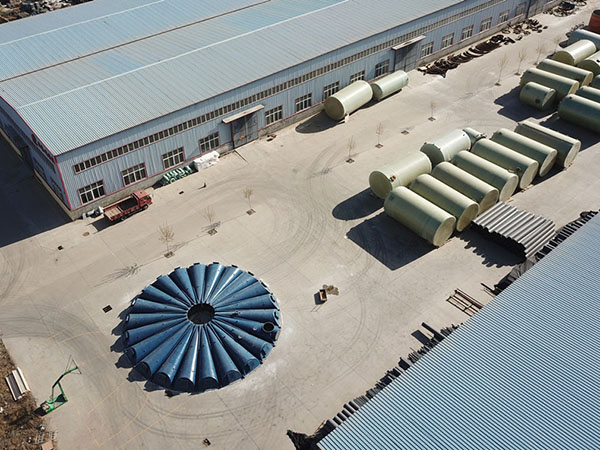
-
 Afrikaans
Afrikaans -
 Albanian
Albanian -
 Amharic
Amharic -
 Arabic
Arabic -
 Armenian
Armenian -
 Azerbaijani
Azerbaijani -
 Basque
Basque -
 Belarusian
Belarusian -
 Bengali
Bengali -
 Bosnian
Bosnian -
 Bulgarian
Bulgarian -
 Catalan
Catalan -
 Cebuano
Cebuano -
 China
China -
 China (Taiwan)
China (Taiwan) -
 Corsican
Corsican -
 Croatian
Croatian -
 Czech
Czech -
 Danish
Danish -
 Dutch
Dutch -
 English
English -
 Esperanto
Esperanto -
 Estonian
Estonian -
 Finnish
Finnish -
 French
French -
 Frisian
Frisian -
 Galician
Galician -
 Georgian
Georgian -
 German
German -
 Greek
Greek -
 Gujarati
Gujarati -
 Haitian Creole
Haitian Creole -
 hausa
hausa -
 hawaiian
hawaiian -
 Hebrew
Hebrew -
 Hindi
Hindi -
 Miao
Miao -
 Hungarian
Hungarian -
 Icelandic
Icelandic -
 igbo
igbo -
 Indonesian
Indonesian -
 irish
irish -
 Italian
Italian -
 Japanese
Japanese -
 Javanese
Javanese -
 Kannada
Kannada -
 kazakh
kazakh -
 Khmer
Khmer -
 Rwandese
Rwandese -
 Korean
Korean -
 Kurdish
Kurdish -
 Kyrgyz
Kyrgyz -
 Lao
Lao -
 Latin
Latin -
 Latvian
Latvian -
 Lithuanian
Lithuanian -
 Luxembourgish
Luxembourgish -
 Macedonian
Macedonian -
 Malgashi
Malgashi -
 Malay
Malay -
 Malayalam
Malayalam -
 Maltese
Maltese -
 Maori
Maori -
 Marathi
Marathi -
 Mongolian
Mongolian -
 Myanmar
Myanmar -
 Nepali
Nepali -
 Norwegian
Norwegian -
 Norwegian
Norwegian -
 Occitan
Occitan -
 Pashto
Pashto -
 Persian
Persian -
 Polish
Polish -
 Portuguese
Portuguese -
 Punjabi
Punjabi -
 Romanian
Romanian -
 Russian
Russian -
 Samoan
Samoan -
 Scottish Gaelic
Scottish Gaelic -
 Serbian
Serbian -
 Sesotho
Sesotho -
 Shona
Shona -
 Sindhi
Sindhi -
 Sinhala
Sinhala -
 Slovak
Slovak -
 Slovenian
Slovenian -
 Somali
Somali -
 Spanish
Spanish -
 Sundanese
Sundanese -
 Swahili
Swahili -
 Swedish
Swedish -
 Tagalog
Tagalog -
 Tajik
Tajik -
 Tamil
Tamil -
 Tatar
Tatar -
 Telugu
Telugu -
 Thai
Thai -
 Turkish
Turkish -
 Turkmen
Turkmen -
 Ukrainian
Ukrainian -
 Urdu
Urdu -
 Uighur
Uighur -
 Uzbek
Uzbek -
 Vietnamese
Vietnamese -
 Welsh
Welsh -
 Bantu
Bantu -
 Yiddish
Yiddish -
 Yoruba
Yoruba -
 Zulu
Zulu
fiberglass reinforced plastic tank
The Advantages of Fiberglass Reinforced Plastic Tanks
Fiberglass Reinforced Plastic (FRP) tanks have gained considerable popularity across various industries due to their impressive combination of strength, durability, and corrosion resistance. These tanks are produced by combining fiberglass fibers with a polymer matrix, resulting in a composite material that offers superior performance compared to traditional materials, such as metal or concrete.
One of the most significant advantages of FRP tanks is their lightweight nature. Compared to steel or concrete tanks, fiberglass tanks are considerably lighter, making them easier and more cost-effective to transport and install. This reduction in weight also translates to lower transportation costs and simpler handling during installation. For many industries, this is a considerable benefit as it can lead to overall cost savings and reduced labor requirements.
Another remarkable feature of fiberglass reinforced plastic tanks is their excellent resistance to corrosion
. Unlike metal tanks, which can rust and degrade over time when exposed to harsh chemicals or moisture, FRP tanks are impervious to many corrosive agents. This property makes them particularly suitable for storing chemicals, wastewater, and other corrosive substances. The longevity of fiberglass tanks due to their corrosion resistance means fewer replacements and lower maintenance costs over time, offering a significant return on investment.fiberglass reinforced plastic tank

Additionally, FRP tanks are known for their durability and resilience. They can withstand extreme temperatures, pressure variations, and impacts without compromising their structural integrity. This robustness makes them a reliable choice for various applications, including water treatment facilities, chemical processing plants, and wastewater management systems.
Moreover, fiberglass reinforced plastic tanks are highly customizable. Manufacturers can tailor the design, size, and shape of the tanks to meet specific industry requirements. This flexibility enables companies to utilize the available space effectively, ensuring that their operations run smoothly. The ability to create tanks with various features, such as bulkheads, access ports, or specialized fittings, can also enhance their functionality.
Another benefit of FRP tanks is their low maintenance requirement. With minimal upkeep needed to maintain their performance, businesses can focus their resources on core operations rather than worrying about tank upkeep. Regular inspections are typically sufficient to ensure that these tanks remain in optimal condition, further enhancing their appeal to industries that prioritize efficiency.
In conclusion, fiberglass reinforced plastic tanks represent a modern solution to storage and processing challenges in various sectors. Their lightweight nature, resistance to corrosion, durability, customization options, and low maintenance needs make them an ideal choice for businesses looking to optimize their operations while minimizing costs. As industries continue to evolve and require materials that can meet demanding performance standards, FRP tanks are likely to play an increasingly crucial role in ensuring that companies can store and manage resources safely and efficiently.









